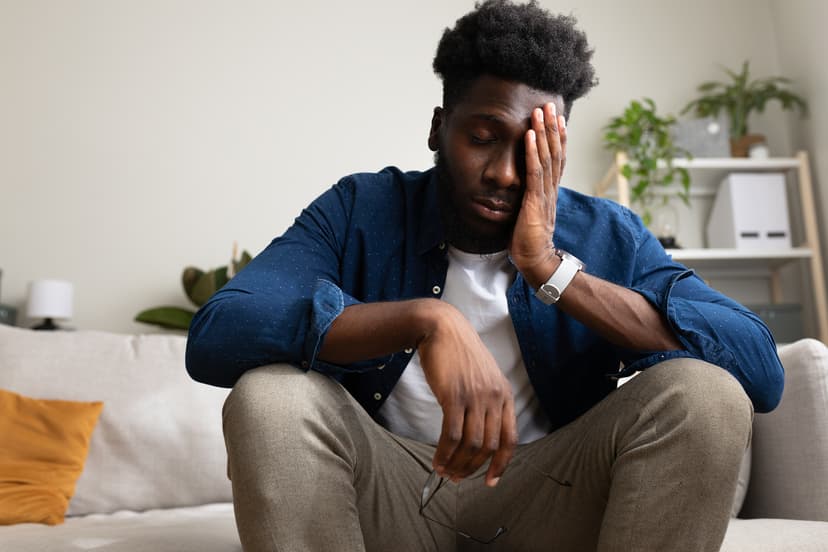ADHD can make life incredibly challenging regardless of where you are in your journey. It could be that you’re just delving into understanding why you feel different, in the process of getting an ADHD assessment, or you’ve had your diagnosis and are finding your feet with what medications, therapies and techniques work for you.
While we usually hear about medicating ADHD to help people cope and using traditional therapy techniques such as CBT and other talking therapies, a lesser-known and free technique to help build better focus, improve self-control, and enhance social skills is music therapy.
What is Music Therapy?
Music therapy is a therapeutic approach that uses music’s emotional, cognitive, and social elements to improve the lives of those with severe brain trauma, children on the autism spectrum, and seniors suffering from Alzheimer’s. It’s an extremely inclusive form of therapy as it can be adapted to people of all ages and can either be used as a free tool by experimenting to see which types of music work for you or you can use a licensed music therapist that will tailor sessions to you.
How Can Music Therapy Help with ADHD?
For individuals with ADHD, there are countless ways music therapy can help with symptoms, including bolstering attention and focus, reducing hyperactivity, and strengthening social skills.
Regulates Dopamine Levels.
ADHD brains have a low supply of dopamine, which is why individuals struggle with attention, working memory, and motivation but research has shown that listening to enjoyable music increases the level of dopamine in the brain. Patti Catalano, a neurologic music therapist at Music Works Northwest states “Music shares neural networks with other cognitive processes.” “Through brain imaging, we can see how music lights up the left and right lobes. The goal of music therapy is to build up those activated brain muscles over time to help overall function.” This shows that adults and children with ADHD can use music to retrain their brains to enable better focus and self-control.
Helps to Regulate and Structure the Brain.
Structure and regulation are things an ADHD brain struggles with and when we think of music, it has a clear rhythm with a beginning, middle, and end, helping to structure thoughts and actions. The brain has a natural tendency to synchronise with rhythmic patterns, which can make it easier to concentrate, focus, plan, anticipate, and react. Certain types of music can also help to reduce hyperactivity and anxiety. Calming melodies and soothing tempos can calm the nervous system and ultimately reduce impulsive behaviours.
Emotional and Physical Regulation.
Music is a great tool for expressing emotion, it’s also good at helping us to process them too. For someone with ADHD, emotional regulation is a struggle so music therapy can provide a safe outlet to express their feelings, helping them to develop a healthier, emotional response, leading to better relationships.
How to Incorporate Music Therapy into Your Day.
The first step to incorporating music therapy into your routine is to understand what music you like, and how it makes you feel, as well as understanding your dislikes, as everybody’s tastes are unique.
Create Playlists for Specific Activities.
Once you understand how you feel when you listen to specific types of music, try creating a playlist to help you through specific activities. If you struggle with hyperactivity, try creating a wind-down playlist that includes slower, more calming sounds. Or if you need to get yourself pumped up, maybe if you struggle with a morning routine, you can create a morning playlist including songs that get you moving. Playlists can be particularly helpful for children with ADHD, you could even consider making up songs to sing to help them with specific tasks.
Play Music to Enhance Behaviour.
Using music to boost or calm your mood can really help to trigger an intuitive, neurological reaction, meaning that depending on what type of music it is, it can help you sit down and focus, wind down before bed, or get yourself up and ready in the morning. Rhythm, melody, and tempo can be used to target non-musical behaviours which can trigger a reaction in the brain, creating a change throughout the body.
Feel What Works for You or Your Child.
ADHD is unique to everybody, therefore the types of music that help one person to work or study might not work for someone else. The reason for being attracted to a particular song is a complex and personal brain function that is immeasurable, therefore a child with sensory processing disorder may prefer silence, however, other individuals with ADHD may prefer a rhythmic background noise in order for them to complete a task.
Speak to a Private ADHD Clinic in Manchester.
Dealing with ADHD symptoms can be tough, however, if you know where to look, there are valuable coping mechanisms to help you with daily tasks and activities, music therapy being one of them.
At Beyond, our clinical team has extensive experience and expertise in ADHD assessment and diagnosis in adults and children, and we are a private ADHD clinic in Manchester, meaning that you can get the help you need fast, with no NHS waiting lists.



